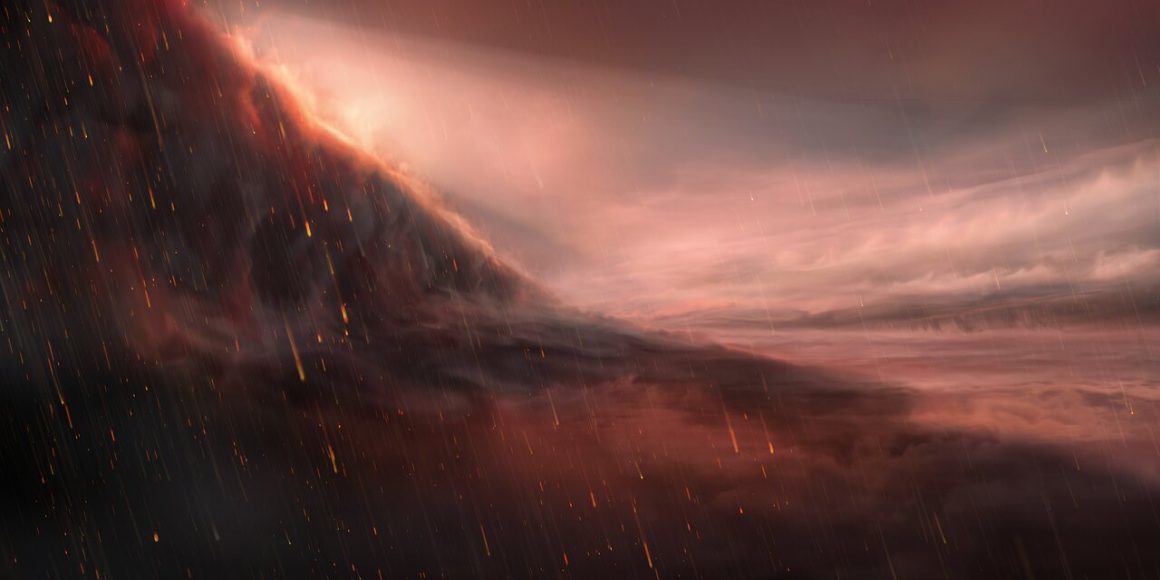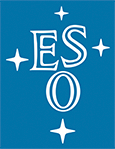© European Southern Observatory
“One could say that this planet gets rainy in the evening, except it rains iron,” says David Ehrenreich, a professor at the University of Geneva in Switzerland. He led a study, published today in the journal Nature, of this exotic exoplanet. Known as WASP-76b, it is located some 640 light-years away in the constellation of Pisces.
This strange phenomenon happens because the ‘iron rain’ planet only ever shows one face, its day side, to its parent star, its cooler night side remaining in perpetual darkness. Like the Moon on its orbit around the Earth, WASP-76b is ‘tidally locked’: it takes as long to rotate around its axis as it does to go around the star.
On its day side, it receives thousands of times more radiation from its parent star than the Earth does from the Sun. It’s so hot that molecules separate into atoms, and metals like iron evaporate into the atmosphere. The extreme temperature difference between the day and night sides results in vigorous winds that bring the iron vapour from the ultra-hot day side to the cooler night side, where temperatures decrease to around 1500 degrees Celsius.
Not only does WASP-76b have different day-night temperatures, it also has distinct day-night chemistry, according to the new study. Using the new ESPRESSO instrument on ESO’s VLT in the Chilean Atacama Desert, the astronomers identified for the first time chemical variations on an ultra-hot gas giant planet. They detected a strong signature of iron vapour at the evening border that separates the planet’s day side from its night side. “Surprisingly, however, we do not see the iron vapour in the morning,” says Ehrenreich. The reason, he says, is that “it is raining iron on the night side of this extreme exoplanet.”
About ESO
ESO, the European Southern Observatory, is the foremost intergovernmental astronomy organisation in Europe and the world’s most productive astronomical observatory. ESO provides state-of-the-art research facilities to astronomers and is supported by Austria, Belgium, the Czech Republic, Denmark, Finland, France, Germany, Italy, the Netherlands, Poland, Portugal, Spain, Sweden, Switzerland and the United Kingdom, along with the host state of Chile. Several other countries have expressed an interest in membership.



